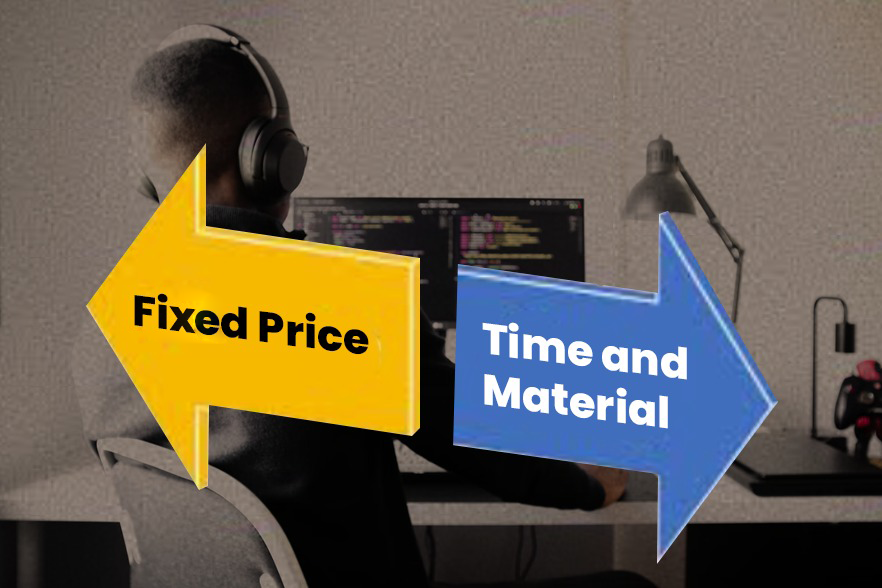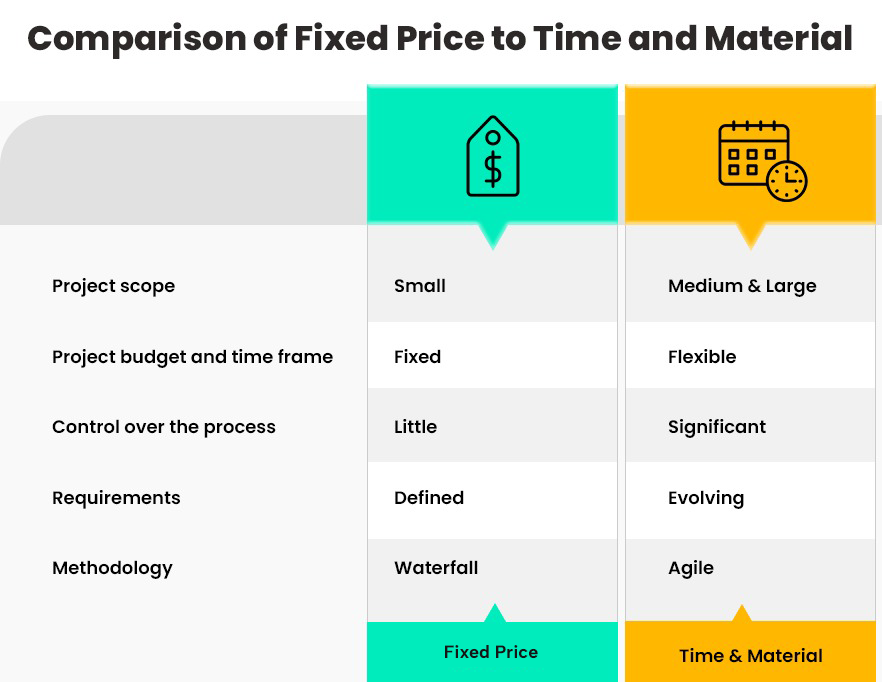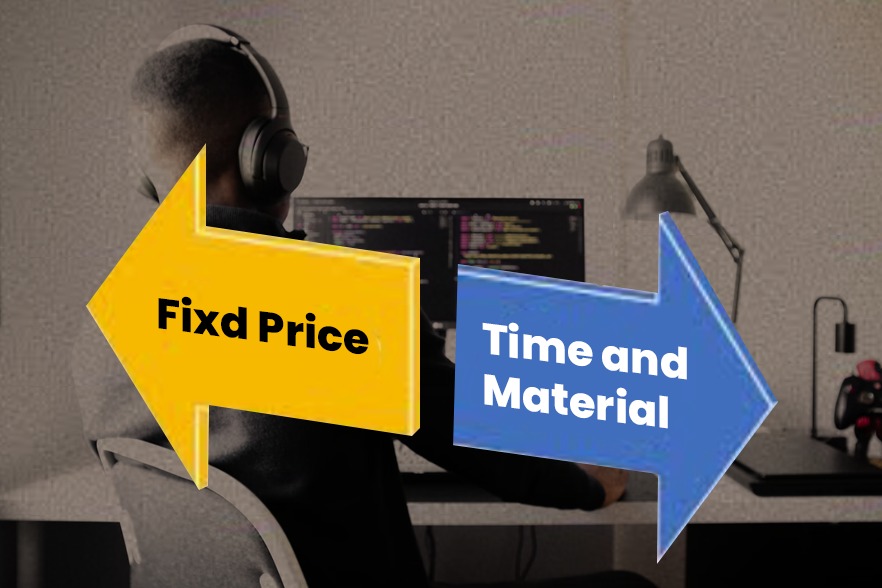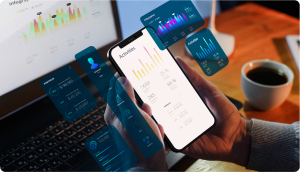
Not all business workflows or applications can be bought off-the-shelf. The alternative then is to develop a customized solution that fits your business requirements like a glove. Your organization might prefer to outsource the development and you have picked a technology partner. Once you have set up a meeting with them then it is important to go in prepared with a decision on the terms of cooperation, so that you are not blind-sided when the tech company brings it up. You have two options to consider: Fixed Price Model and Time and Materials Model (T&M). Both are distinctive and choosing the wrong one might see your billing go through the roof.
Here is the low-down on both these models and the criteria that will help you make a choice between the two.
Time and Materials vs Fixed Price – it’s apples and oranges
In the Time and Materials contract you are billed based on the number of hours the resource team spent on a specific project, the technology and skill level of the team working on it. Software licenses and similar costs will be common to all pricing models. However, in T&M, efforts and cost will be estimated based on the resources required to develop each user story. Since resources and timelines can accommodate change requests, the main advantage of the time and materials contract is the flexibility to adjust your requirements, replace features that don’t work and shift directions. However, if the IT project takes double the estimated time then the cost of development can also double.
Fixed Price project is a single-sum contract where the service provider agrees to complete your project to an agreed sum set for a fixed specification that is set out before development can start. . It is the right choice if you are sure your requirements are all cut and dried. Are you absolutely clear on what is the scope of your project? Probably you have an in-house IT team that will help create the complete specifications.
The development methodology is so very different for these two models that any comparison would be like comparing an apple to an orange. Both are delicious of course but they are completely different fruits.

Real-time examples to explain the pricing strategy
There is nothing like real-time applications as examples to put across the difference more vividly. For instance, if the tech partner’s web development team is editing your existing website, then the invoice they will generate for a T&M pricing model for the WordPress project would be:
OVL SSL Certificate: $150
Usage of licensed themes : $119
20 hours of resource time for customized features at $100/hour: $2000
Total: $2296
This is the real-time that it would have taken the tech team to complete the project along with testing and edits based on client feedback. And this costing will be presented usually as a monthly or periodic billing when the project is complex or extensive.
Continuing with the same example, halfway through, you wish to change the underlying theme and add more web pages, the time and material model works perfectly. You can interact with the development team, make the necessary requirement changes and work towards the new implementation.
On the other hand, for a fixed price project, you set a budget ($2296 as in above example) and define what resources and materials are needed. You can still request small changes in the requirements in the fixed cost model, but you need to re-work on the budget as additional work hours and materials may be billed at a premium.
Here’s when a fixed price contract is right for you
Fixed Price projects are best suited when your project’s scope is clearly defined upfront and the costs of the materials and labor can be estimated precisely and you want to avoid project delays. Here are a few other checkpoints that your project must meet when opting for this pricing model.
- You have a small or a medium sized project or an MVP.
- You have less time to interact with the service provider or the team.
- The project requirements won’t change.
- You have a limited budget for the project, or you need to get your budget approved at the start.
- You are more interested in the deliverables than the time taken. This means that you will be charged the same amount even if the project is finished before the estimated date.
When a time and material contract make the most sense?
Traditionally most software outsourcing contracts were built on a fixed price model. However, in recent years there has been a change – In the case of long term projects, most businesses are opting for a T&M model. Here is a checklist when this model will work for you when outsourcing
- If your project is open-ended and an accurate estimation of time cannot be arrived at.
- If you need to start on the project development at the earliest. Normally a T&M contract is simpler compared to a fixed price one. In the latter, every requirement needs to be covered and estimated.
- If you have enough resources to collaborate with the vendor as you will need to be fully involved in the iterative process, unlike in a fixed price model.
- If you need to have full control over the development process.
The biggest hesitation most companies might have with this model is that if it is open-ended how can you be sure that the developers are actually billing you for hours worked. Software outsourcing companies use a time-tracking software that will accurately and automatically track when and who worked on what. So, technology is in place to make the process more transparent.
If you are still in doubt about outsourcing your software requirements while keeping to your budget, this might be just the time to talk to our team on your requirements and costing structure. We have a proven track record built over 18 years of successfully building and maintaining projects for our clients, globally.








